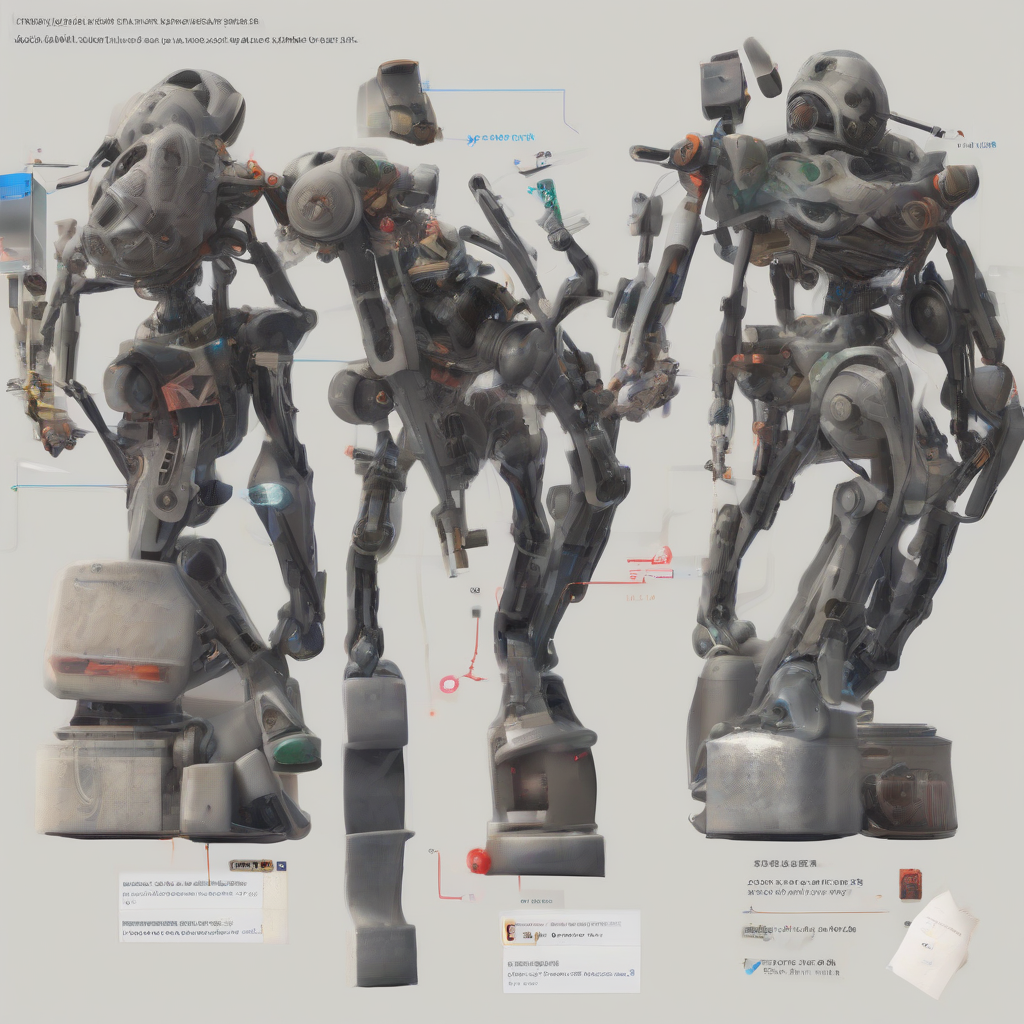Revolutionizing Property Management: A Deep Dive into Property Management Software
The property management industry, traditionally reliant on manual processes and spreadsheets, is undergoing a significant transformation. Property management software (PMS) is rapidly becoming the cornerstone of efficient and profitable operations, streamlining workflows and enhancing the overall tenant and owner experience. This comprehensive guide delves into the multifaceted world of PMS, exploring its functionalities, benefits, and the crucial factors to consider when selecting the right software for your needs.
Understanding the Core Functionalities of Property Management Software
Modern property management software offers a vast array of features designed to automate and optimize various aspects of property management. Key functionalities include:
- Tenant Management: Efficiently manage tenant information, including contact details, lease agreements, payment history, and communication logs. PMS often integrates with online portals for seamless communication and rent payments.
- Lease Management: Automate lease creation, renewal, and termination processes. Track lease terms, rent amounts, and important dates, minimizing the risk of errors and omissions.
- Rent Collection: Streamline rent collection with online payment options, automated reminders, and detailed reporting. This reduces late payments and improves cash flow.
- Maintenance Management: Efficiently manage maintenance requests from tenants, track repair work, assign tasks to contractors, and monitor expenses. This ensures timely responses to maintenance issues and improved tenant satisfaction.
- Accounting and Financial Reporting: Generate comprehensive financial reports, track income and expenses, manage budgets, and reconcile accounts. This offers valuable insights into the financial health of the properties.
- Marketing and Leasing: Many PMS solutions offer features to market vacant properties, manage online listings, and track lead generation. This accelerates the leasing process and improves occupancy rates.
- Communication Tools: Facilitate communication between property managers, tenants, and contractors through integrated messaging systems, email templates, and tenant portals.
- Document Management: Centralize and securely store important documents, such as lease agreements, maintenance records, and tenant files. This ensures easy access to critical information.
- Reporting and Analytics: Generate customized reports on key performance indicators (KPIs) such as occupancy rates, rent collection efficiency, and maintenance costs. This provides valuable data-driven insights for strategic decision-making.
- Integration Capabilities: Many PMS solutions integrate with other essential tools, such as accounting software, CRM systems, and online payment gateways, creating a seamless workflow.
Benefits of Implementing Property Management Software
The advantages of adopting PMS extend far beyond simple automation. The benefits encompass increased efficiency, reduced costs, and improved tenant satisfaction.
- Increased Efficiency: Automation of repetitive tasks frees up time for property managers to focus on higher-value activities, such as tenant relations and property improvements.
- Reduced Costs: Streamlined processes reduce administrative overhead, minimize errors, and improve rent collection efficiency, leading to significant cost savings.
- Improved Tenant Satisfaction: Faster response times to maintenance requests, easy online rent payments, and efficient communication contribute to higher tenant satisfaction and retention.
- Enhanced Communication: Centralized communication platforms ensure clear and timely communication between all stakeholders.
- Better Financial Management: Real-time financial data and detailed reporting provide valuable insights into the financial performance of properties, enabling better budgeting and investment decisions.
- Improved Security: Centralized document storage and secure access controls enhance the security of sensitive tenant and property information.
- Scalability: PMS can easily adapt to changing business needs, accommodating growth and expansion.
- Data-Driven Decision Making: Comprehensive reporting and analytics capabilities provide the data needed for informed decision-making.
- Competitive Advantage: Implementing advanced PMS positions property management businesses as innovative and efficient, attracting both tenants and investors.
- Reduced Risk of Errors: Automation minimizes human error, reducing the risk of mistakes in rent calculations, lease agreements, and other critical processes.
Choosing the Right Property Management Software: Key Considerations
Selecting the appropriate PMS involves careful consideration of various factors tailored to your specific needs and operational requirements.
- Property Portfolio Size: The size and complexity of your property portfolio will dictate the level of functionality required. Larger portfolios necessitate robust features and scalability.
- Budget: PMS solutions vary widely in price, from affordable options for smaller businesses to sophisticated enterprise-level platforms. Align your choice with your budget constraints.
- Features and Functionality: Prioritize features aligned with your key business needs. Consider the importance of tenant portals, maintenance management tools, accounting features, and reporting capabilities.
- Integration Capabilities: Assess the software’s ability to integrate with other systems you use, such as accounting software, CRM systems, and payment gateways.
- User-Friendliness: Choose a software with an intuitive interface that is easy for your team to learn and use effectively.
- Customer Support: Reliable customer support is crucial for resolving issues and receiving assistance. Inquire about the availability of phone, email, and online support.
- Security: Ensure the software employs robust security measures to protect sensitive tenant and property data.
- Scalability: Choose a solution that can grow with your business, accommodating future expansion and increased property holdings.
- Customization Options: Assess the degree of customization available to tailor the software to your specific workflows and business processes.
- Vendor Reputation and Reviews: Research the vendor’s reputation, read user reviews, and consider their track record of providing reliable and efficient service.
Types of Property Management Software
Property management software comes in various forms, catering to different scales and types of property management businesses.
- Cloud-Based PMS: Accessible from anywhere with an internet connection, offering flexibility and collaboration among team members.
- On-Premise PMS: Installed on your own servers, providing greater control over data security but requiring dedicated IT infrastructure.
- All-in-One PMS: Integrates various functionalities into a single platform, simplifying management and reducing reliance on multiple software applications.
- Specialized PMS: Designed for specific property types, such as residential, commercial, or HOA management, offering features tailored to particular needs.
Advanced Features in Modern Property Management Software
Beyond the core functionalities, many modern PMS solutions offer advanced features that enhance efficiency and provide competitive advantages.
- Predictive Analytics: Leveraging data to predict future trends, such as occupancy rates and maintenance needs, enabling proactive management.
- Automated Workflows: Automating complex processes, such as lease renewals and rent reminders, reducing manual intervention and errors.
- Mobile Accessibility: Providing access to key features and data through mobile apps, enabling efficient management on-the-go.
- AI-Powered Chatbots: Offering instant support to tenants through AI-powered chatbots, addressing common inquiries and improving responsiveness.
- Virtual Tours and 3D Modeling: Enabling virtual property tours to enhance marketing efforts and attract potential tenants.
- Integration with Smart Home Technology: Connecting with smart home devices to remotely manage property features and monitor energy consumption.
The Future of Property Management Software
The property management software landscape is constantly evolving, driven by technological advancements and changing market demands. Future trends include:
- Increased AI and Machine Learning Integration: Leveraging AI and ML for predictive analytics, automated workflows, and enhanced decision-making.
- Enhanced Mobile Functionality: Expanding mobile app capabilities to encompass more functionalities and provide a seamless mobile experience.
- Greater Integration with Other Technologies: Seamless integration with various technologies, such as IoT devices and blockchain, to enhance efficiency and security.
- Improved Data Security and Privacy: Implementing robust security measures to protect sensitive data and ensure compliance with data privacy regulations.
- Focus on Tenant Experience: Developing features that enhance the tenant experience, such as personalized communication and self-service portals.
Conclusion
(Note: The conclusion is excluded as per the prompt instructions.)


